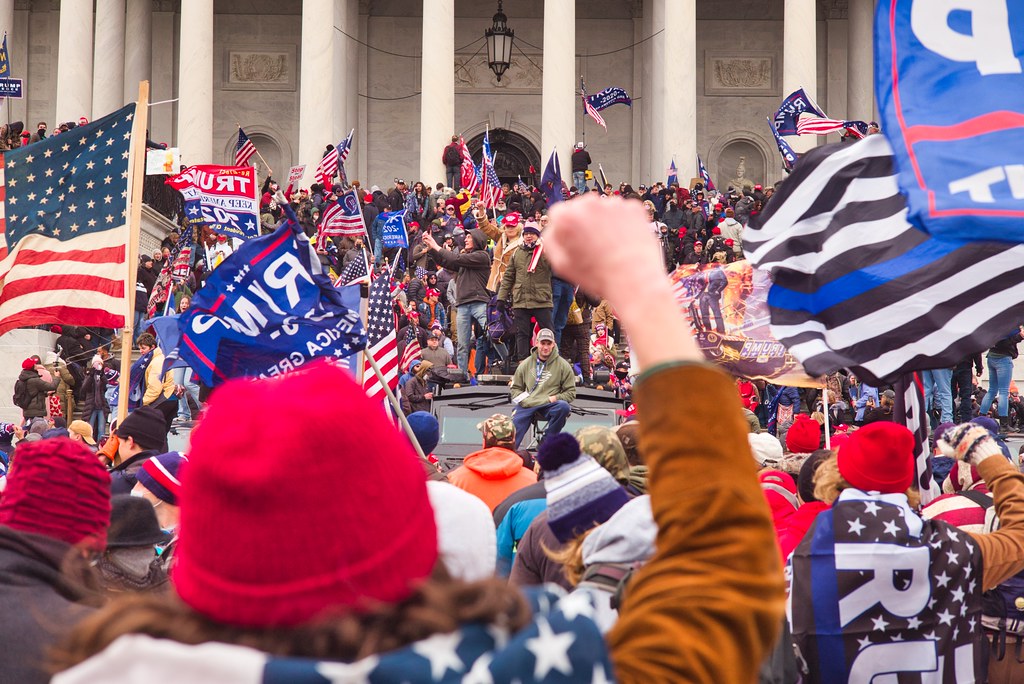On December 19, 2023, Colorado’s Supreme Court declared former President Trump ineligible for presidency under the 14th Amendment of the U.S. Constitution and removed him from the state’s presidential primary ballot. Just over a week later, Maine followed suit.
Both states cited Section 3 of the 14th Amendment, the Insurrection Clause of the Constitution. This clause prohibits those who have taken an oath to uphold the Constitution of the United States and “have engaged in insurrection or rebellion, or given aid or comfort to the enemies thereof” from holding office, unless a two-thirds vote of both houses of Congress makes an exception.
The Colorado Supreme Court, which voted 4-3, as well as Maine’s Secretary of State, have ruled that Trump’s actions and words in regard to the January 6 attack on the Capitol are unconstitutional and disqualify him from the ballot.
Trump’s lawyers argue that the former president has not been convicted of a crime and, therefore, cannot be accused of having violated Section 3. Some legal professionals also question the validity of the clause because it was written specifically to prevent Confederate generals and politicians from taking office after the Civil War.
The Republican primaries, which run from January 15 to September 10, 2024, will decide the party’s candidate for the 2024 presidential election. Trump is the current frontrunner, polling at 60% as of January 11—far ahead of his rivals. While Florida governor Ron DeSantis and former U.S. Ambassador to the United Nations and the first female governor of South Carolina, Nikki Haley, have credible campaigns, it is almost certain that Trump will be the name on the ballot in November.
However, removing Trump’s name from the ballots in Colorado and Maine is unlikely to change the outcome of the Republican primary. If Democrats want to eliminate the threat of Trump through legal means, similar efforts would have to be taken in other states.
The Supreme Court is set to hear Trump’s appeals on February 8, and it is likely to rule in his favor. Out of nine current judges, six were appointed by Republican presidents, and the current court has ruled conservatively on many cases, including overturning Roe v. Wade and ruling against affirmative action in Students for Fair Admission v. Harvard.
Some Democrats worry that attempts to hinder Trump’s chances for a second term may backfire by galvanizing his supporters. California governor Gavin Newsom stated, “There is no doubt that Donald Trump is a threat to our liberties and even to our democracy, but in California, we defeat candidates at the polls.”
Critics argue that disqualifying Trump from participating in primaries could be perceived as an obstruction of the democratic process. Some argue voters should have the ultimate choice, and any interference with the process of the election raises questions about the integrity of the entire system.
As independent presidential candidate Robert F. Kennedy Jr. wrote on X (formerly known as Twitter), “When a court in another country disqualifies an opposition candidate from running, we say, ‘That’s not a real democracy.’ Now it’s happening here.”
Barring a not-yet-convicted candidate from running sets a dangerous precedent for the institutions of this nation, obstructs democracy, and ignores the will of the American people.
No matter how dangerous Democrats believe the prospect of a second Trump administration, blocking the frontrunner from primary ballots can be seen as election interference, and legally sidelining Trump may exacerbate existing divisions in this country.
Democrats and anti-Trump Republicans should be more cautious in their efforts to prevent Trump from returning to the Oval Office next year, or they might just help him win.






